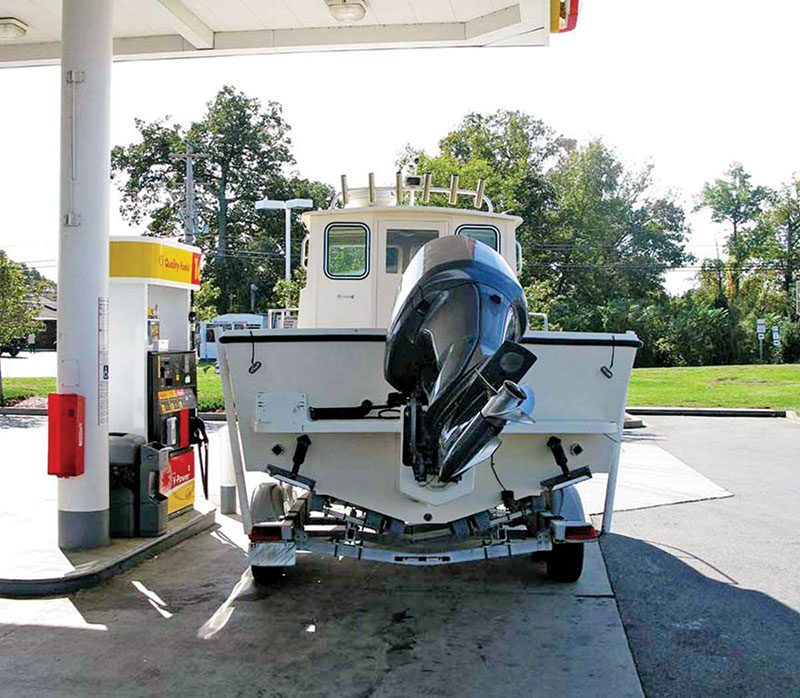
Most engines on the water today run well on the standard widely available ethanol blend. The problem is the shelf life of the fuel. Boats that aren’t used often enough are in danger of serious issues.
Over time, octane diminishes in all gasoline. Pure gas, without ethanol, maintains its integrity for six to eight months. Untreated ethanol fuel absorbs moisture from the air. It can become damaging to your engine in as little as three months because of moisture contamination or separation.
The best way to store gas, possibly up to two years, is to use fuel stabilizer. This is especially important for boats that are used only a few times a month. It is highly recommended to use gas treatments recommended by each manufacturer, and remember that stabilizers work best when added to new fuel.
Corrosion is another issue that comes with ethanol gas. It is not a problem with most newer aluminum tanks, but older tanks corrode from water contamination. That corrosion, in turn, can clog your entire fuel system. If your tanks need to be emptied due to contamination, it should be pulled from the fuel sender since the pickups do not go to the tank bottom where the contamination sits.
If your fuel has been sitting, it’s wise to test before running it through your engine. To test your fuel, pour it into a clear glass jar. If you see two layers of color, the fuel has separated and needs to be disposed of at a government-approved site.
When possible, use non-ethanol gas, and don’t ever mix ethanol with non-ethanol fuel. This can cause further issues. Also, there’s no advantage to using a higher octane than the manufacturer recommends.
Contact Steve Naeder at Boathouse Discount Marine Supplies’ Melbourne Service Center by calling (321) 254-2535 or emailing service@boathousediscountmarine.com.
